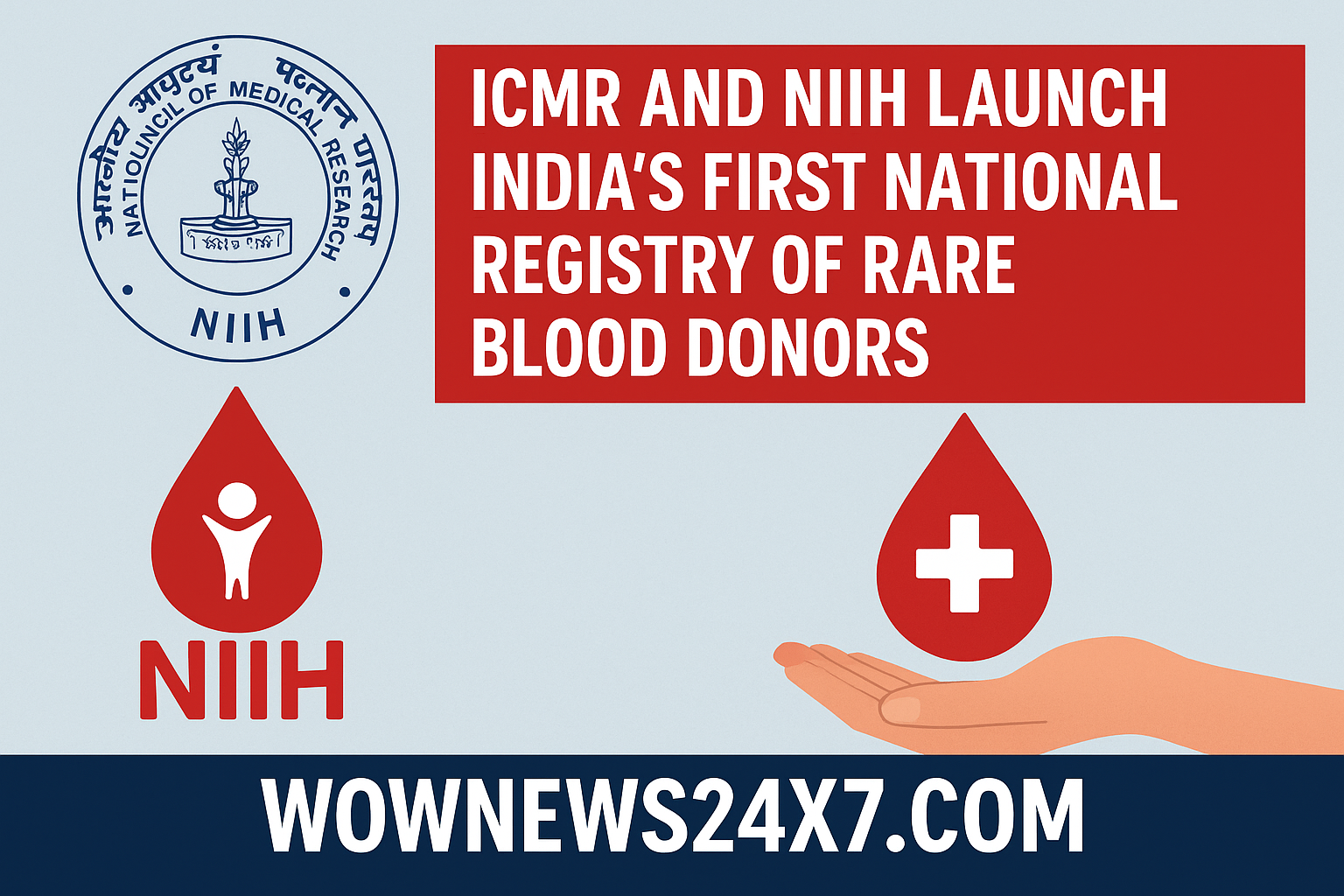In a pioneering move to fill the vital gap in rare blood groups, the Indian Council of Medical Research (ICMR) and its National Institute of Immunohaematology (NIIH) have launched the country's first national registry of rare blood donors.
Key Points:
-
The registry will assist patients with rare blood groups, particularly thalassemia, sickle cell disease, and other conditions that require repeated transfusions.
-
Insufficient blood types—those missing highfrequency antigens or unique sets of antigens—are found in less than 1 in 1,000 individuals, and prompt transfusions are a logistical issue.
Integration with eRaktakosh:
-
It will be connected to the government's eRaktakosh portal in order to enable realtime monitoring of rare blood availability in India's 4,000+ licensed blood banks.
-
It will automate donorrecipient matching and will allow blood banks to more effectively manage inventory.
Why It Matters:
-
India experiences more than 60 million operations, 240 million major procedures, and 10 million pregnancyrelated complications every year—each one of which is a potential blood demand opportunity.
-
Small antigen mismatches, often not identified by standard ABO and RhD typing, may lead to alloimmunisation, notably in thalassemia individuals, at frequencies of up to 18 percent.
-
The registry will prevent transfusion complications through better antigen matching.
Global Context: India is among the 27 countries that have a national rare donor registry, a significant step towards equitable transfusion care.
Sources: Business Standard, The Hindu BusinessLine, Economic Times, NewsBytes, The Week, The Hindu

